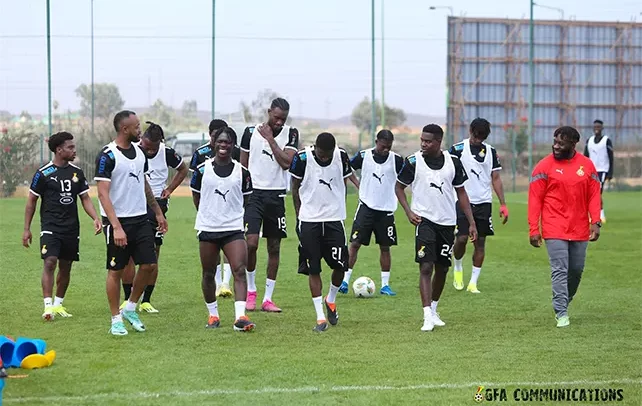
Following the recapitalisation exercise that ended at the close of business on December 31, 2018, 23 banks - which have all met the new minimum paid-up capital of GH¢400 million - are now operating as universal banks in Ghana.
Out of 23, 16 banks have met the new minimum paid-up capital requirement of GH¢400 million mainly through capitalisation of income surplus and a fresh capital injection, while three applications for mergers have been approved.
The 16 banks are Zenith Bank, Ecobank, GCB Bank, Stanbic Bank, Standard Chartered Bank and Barclays Bank. The others are Access Bank, Consolidated Bank, Republic Bank, Fidelity Bank, UBA, Societe Generale, GT Bank, FBN Bank, Cal Bank, and Bank of Africa
Consequently, First Atlantic Merchant Bank Limited has merged with Energy Commercial Bank, Omni Bank with Bank Sahel Sahara and First National Bank with GHL Bank, with the three resulting banks from the mergers meeting the new minimum capital requirement.
Meanwhile, some private pension funds in Ghana have injected fresh equity capital in five indigenous banks, including two state-owned banks?the Agricultural Development Bank (ADB) and the National Investment Bank (NIB)? through a special purpose holding Company?Ghana Amalgamated Trust Limited (GAT).
In addition to the GAT scheme benefits, the other beneficiary banks?the merged Omni/Bank Sahel Sahara, Universal Merchant Bank and Prudential Bank? have been selected by GAT on the basis of their solvent status and good corporate governance.
Dr Ernest Kwamina Yedu Addison, Governor, Bank of Ghana (BoG), who made these known at a news conference in Accra on Friday, January 4, 2019, explained that Resources from GAT would be used to recapitalise ADB and NIB to help drive and promote long-term sustainable financing for agricultural and industrial expansion.
According to Dr Addison, the Government had notified BoG that it intended to restructure NIB through governance and management reforms as well as streamline its business model to help refocus it as a bank to support industrialisation.
He said to help ensure that these reforms succeeded, BoG had appointed an advisor for NIB, pursuant to section 101 (1) of the Banks and Specialised Deposit-Taking Institutions Act, 2016 (Act 930), to advise management of the bank with a view to helping improve the affairs of the bank.
The Advisor, who would hold office until otherwise advised by the BoG, he added, would submit a status report on the bank to BoG within three months and as frequently as the Bank of Ghana would require.
On GN Bank (GN), Dr Addison disclosed that the bank had applied for, and BoG had approved, the grant of a Savings and Loans Company License as the bank was unable to comply with the Minimum Capital Requirement Directive by December 31, 2018.
In addition, he said, BoG had also approved a transition plan submitted by GN for winding up aspects of its business not compatible Savings and Loans Company License, adding that the BoG would closely monitor the implementation of the approved transitional plan, expected to be completed by the end of June 2019.
To that effect, he said, BoG had appointed an advisor for GN, pursuant to section 101 (1) of the Banks and, with a view to ensuring a smooth transition to a viable Savings and Loans Company, adding that the Advisor, who would submit a status report on the GN in three months and as frequently as the Bank of Ghana would require, would hold office until otherwise advised by BoG.
Dr Addison disclosed that BoG approved a request for a voluntary winding up of the operations of Bank of Baroda (Ghana) Limited, effective December 31, 2018.
He said the Bank of Baroda (Ghana) Limited? a wholly-owned subsidiary of Bank of Baroda, India, which was, in turn, wholly-owned by the Government of India and licensed by the Bank of Ghana as a universal bank on January 28, 2008?had, by a letter dated April 9, 2018, notified BoG of the decision by Bank of Baroda, India (the parent company of Bank of Baroda (Ghana) Limited) to divest/sell its entire 100% equity in the bank, due to the Government of India's decision to rationalize the overseas operations of the branches/subsidiaries of Indian public sector banks.
He said to ensure an orderly exit and to safeguard the interest of depositors and customers, BoG had approved an Assumption Agreement between Bank of Baroda (Ghana) Limited and Stanbic Bank Ghana Limited under which the latter would assume all deposits and selected loan assets of the bank, adding that BoG would closely monitor the transition, and was confident that Stanbic Bank Ghana Limited would ensure that depositors of Bank of Baroda (Ghana) Limited continued to have access to their deposits.
Dr Addison also announced the revocation of the banking licenses of Premium Bank Limited and Heritage Bank Limited, with effect from the date of this Notice, Pursuant to Section 123 of the Banks and Specialised-Deposit-Taking Institutions Act, 2016 (Act 930).
He disclosed that while Premium Bank was found to be insolvent as at November 30, 2018 with a capital adequacy ratio of negative 125.26%, Heritage Bank, among other things, had been cited for obtaining its banking license on October 4, 2016 on the basis of capital with questionable sources as well as being unable to meet the new minimum capital requirement of GH¢ 400 million as at December 31, 2018.
To that effect, BoG, he said, had appointed Mr Vish Ashiagbor of PricewaterhouseCoopers as Receiver for the two banks and approved a Purchase and Assumption Agreement between the Receiver and Consolidated Bank Ghana Limited (CBG) under which the Receiver had transferred some assets and liabilities of the two banks, as well as all deposits (current, savings and fixed deposit accounts) to CBG?with effect from the date of this notice.
Dr Addison disclosed that the Government of Ghana had issued a bond amounting to GH¢ 1.403 billion to CBG to cover the gap between the value of the good assets and liabilities of the two banks transferred to CBG, while assuring customers of the of the two banks of the safety of their deposits and full access to their funds.
Source: G.D. Zaney, Esq.
Read Full Story


















Facebook
Twitter
Pinterest
Instagram
Google+
YouTube
LinkedIn
RSS